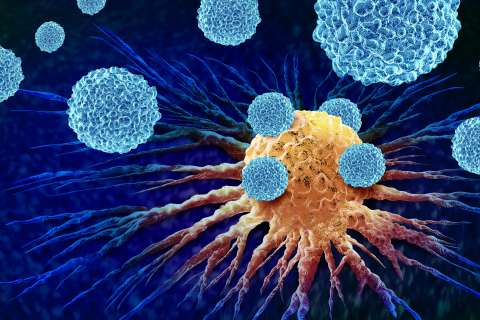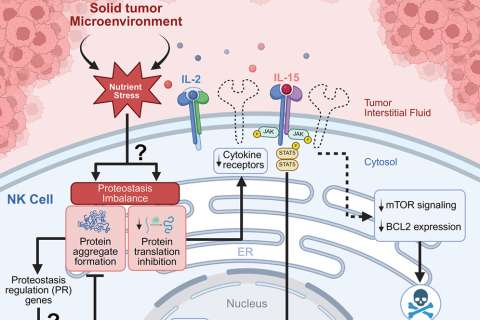For nearly three decades, the Simms/Mann-UCLA Center for Integrative Oncology has provided comprehensive support for patients and families, including psychological counseling, psychiatry, nutritional support, chaplaincy, peer support groups, and other wellness programs such as qi gong and meditation. Most of these services are free.
Along the way, the Center has become a national model for how cancer treatment is practiced, embracing the integrative care concept by addressing patients’ physical, psychological and spiritual needs, with services provided in multiple languages.
With a recent gift by the Simms/Mann Family Foundation, in partnership with UCLA Health, the Center has expanded the reach of its whole-person approach to all 20 UCLA hematology/oncology clinics.
The Center provides support to cancer patients and their families throughout their cancer journey – in person, via telehealth, and with online resources. Beyond the core support services, patients can experience practices such as breathwork and art therapy, as well as attend webinars on topics ranging from the financial impact of cancer to managing anxiety.
Innovative services
“The Simms/Mann Center has always offered evidence-based programming and we will continue to be at the forefront of innovative services for cancer care,” said Victoria Mann Simms, PhD, a nationally recognized child development specialist and philanthropist and president of the Simms/Mann Family Foundation.
The Center is currently developing a digital platform, Dr. Simms said, starting with a robust website offering leading-edge information and eventually expanding to include a user-friendly app. The Center also plans to provide augmented, mixed and/or virtual reality experiences to patients in the infusion suites and is looking to build out a studio space to house classes – such as cooking and yoga – for patients.
“The Simms/Mann Center strives to offer supportive care and resources to those with the greatest needs, often from marginalized or medically under-served communities,” Dr. Simms said. “Offering services from within the 20 hematology/oncology clinics throughout Southern California gives us the opportunity to meet patients where they live, learn, work and worship. Adjusting our programs to meet the needs of the communities we serve will give patients and their loved ones greater access to valuable support.”
Culturally congruent care
With the Simms/Mann Center having expanded, the need to provide culturally congruent care also has grown. The Center has made a point of hiring clinicians who speak multiple languages and clinicians who reside in the communities they serve.
The Center plans to expand its region-specific groups and offerings even further. This may include, for example, nutrition workshops or cooking classes that incorporate recipes from the cultures that predominate in that region. The Center also has begun working closely with Bowyer Oncology, which serves an underinsured population.
“Mind, body, spirit and emotions all go together and affect a person’s well-being,” Dr. Simms said. “They are not an add-on; they are part of holistic cancer care. Likewise, families are an integral part of a person’s cancer journey, and they need holistic support of their own.”
It is routine now for a person with cancer or their loved ones to immediately begin seeing a social worker, trained psychologist, chaplain, nutritionist, and/or psychiatrist at the start of treatment. This can help them to preserve their mental health and well-being while enduring the sometimes-grueling medical treatments that might involve surgery, radiation and chemotherapy.
“Fully integrating these services into a person’s cancer care empowers patients to feel some control over their health,” Dr. Simms said. “The care that the Simms/Mann Center provides is a part of their oncology care, which helps increase patient access, reduces stigma, and allows people living with cancer and their loved ones to more easily engage in supportive services.”
Dr. Simms said she would like for this integrative, whole-person approach to become the norm in cancer treatment.
“That is why many years ago I advocated for the Center to develop a training program to create the pipeline for the next generation of integrative cancer care professionals,” Dr. Simms said. “The Center currently trains interns, residents and practitioners in psychosocial care, chaplaincy, psychiatry and palliative care, emphasizing teamwork.”
In the process, the Center is a model for the rest of the country.
“I hope others will follow this template,” Dr. Simms said.
Tina Daunt is the author of this article.




